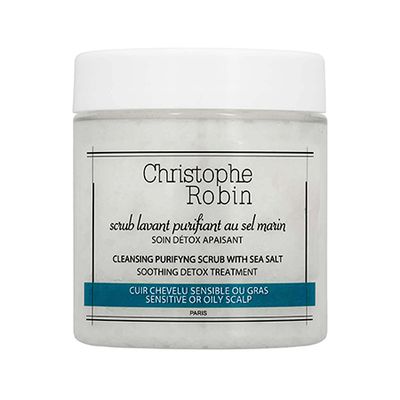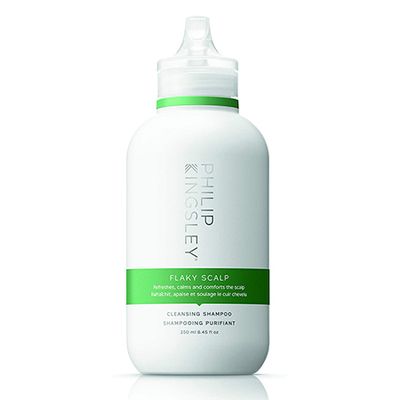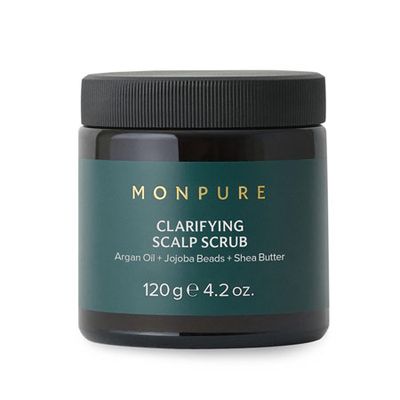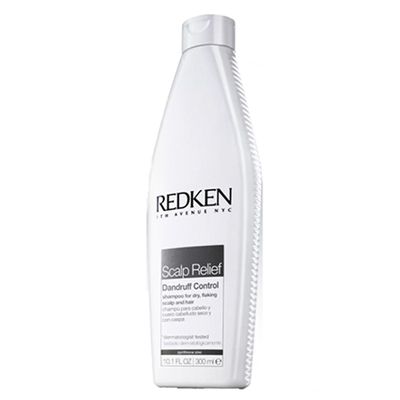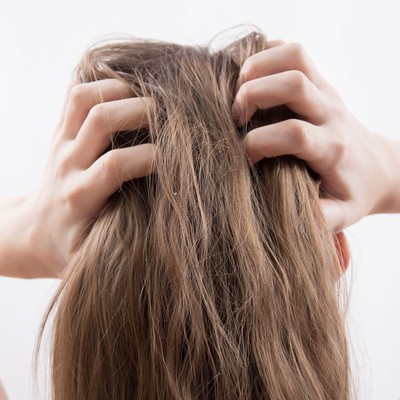
Beauty 101: Why You’re Getting Dandruff & How To Treat It
There Are Numerous Triggers
“For many, dandruff occurs when the microbiome of their scalp becomes imbalanced,” says Anabel Kingsley, trichologist at Philip Kingsley. “Yeast naturally lives on our scalp, and usually it doesn’t cause any problems. However, when a certain species of yeast (called the Malassezia yeast) overgrows, this can cause skin cells to divide too rapidly – which in turn, leads to tell-tale flakes and itching. What’s more, this type of yeast thrives in an oily environment, so it’s likely to overgrow if you shampoo infrequently or are unfortunately, prone to oiliness. It’s also worth noting other triggers, which include, stress, illness, hormonal fluctuations (including Polycystic Ovarian Syndrome) and certain foods – think full fat dairy.”
Diet Plays A Big Part
“Believe it or not, readjusting your diet can really help minimise flare-ups,” adds Anabel. “Try eating plenty of foods rich in anti-inflammatory Omega 3 – like salmon, mackerel, sardines, walnut and chia seeds. Supplement with Omega 3s, too, where possible. Lastly, avoid foods and drinks that commonly trigger dandruff. These include full-fat dairy products, like cheese, as well, sadly, as champagne, white wine and spicy foods.” Michael Van Clarke, hairdresser and stylist agrees: “Protein is another essential dietary requirement for those with dandruff. It helps to strengthen the hair from the inside out, working to rebuild and protect it.”
Some Of Us Are More Prone
“We aren’t sure why, but some of us are definitely more prone to dandruff,” adds Anabel. “It is thought that some people are more sensitive to the Malassezia yeast mentioned above. It’s also more common during puberty (i.e. in your teenage years), when testosterone is high, and therefore oil production increases. Stress also plays a big part; it can disrupt your skin’s barrier function. There’s no one-size-fits-all for managing this, but yoga, Pilates and mindfulness can help.”
You Can’t Cure It Completely
“You cannot cure or 100% prevent dandruff, but there are steps you can take to reduce the likelihood of a flare-up,” advises Anabel. “One of the most important things you can do is to shampoo regularly. This removes excess oils, which helps to keep yeast levels in-check and makes it harder for them to over-proliferate. The massaging action of shampooing also helps to remove dead skin cells from your scalp’s surface.” Michael agrees: “Regular cleansing is key. But avoid using products that contain silicones – they attach to hair and the scalp, in turn, causing build up. It’s also worth considering upping your supplementation of iron, zinc and folic acid – all are brilliant for promoting a healthier scalp.”
Weekly Targeted Treatments Will Help
“If you find you’re particularly prone to dandruff, or the more severe form (called seborrheic dermatitis – dandruff’s big brother), try using targeted products as part of your regular routine,” explains Anabel. “This can be a scalp mask, a daily anti-microbial scalp toner or an anti-dandruff shampoo every other wash.” Michael adds: “Exfoliating scalp treatments are becoming more popular – and for good reason. Applied to wet hair and massaged onto the scalp, natural fruit acids lift away dead skin and build up to clear flakiness and soothe irritation. It’s an easy way to stimulate blood flow and promote cellular renewal.”
Certain Ingredients Provide Better Results
“There’s a host of ingredients worth looking out for when treating dandruff,” explains Anabel. “For starters, piroctone olamine is essential if you’re really suffering. It’s an anti-microbial ingredient that specifically targets the yeast responsible for dandruff. Witch hazel is great too as it helps to regulate sebum (oil) production over time. Finally, keep your eyes peeled for camphor (a calming, anti-itch active) and salicylic and lactic acid, both of which are gentle but very effective at getting rid of flakes and dryness. It’s also worth noting that if you use dry shampoo, it should contain allantoin. This is a soothing, anti-itch and anti-flake ingredient.”
Scratching Must Be Avoided
“The temptation might be there, but you must resist the urge to scratch when irritation occurs,” offers Anabel. “It’s important to remember this, as doing so can further aggravate your scalp and initiate an infuriating ‘itch-scratch cycle.’ Scratching can also introduce bacteria into the scalp and cause infection.”
Dandruff Shouldn’t Be Confused With Psoriasis
“There are so many different scalp conditions it’s hard to keep up. Dandruff is commonly mistaken for psoriasis, but this is actually an auto-immune condition,” says Anabel. “The difference is psoriasis typically causes tight, thick, white, asbestos-like plaques that have bleeding points underneath. Dandruff however, can be treated with products and treatments. It’s also mistaken for a dry scalp at times. Straight forward dryness occurs when the top layer of the skin lacks moisture. It is often due to environmental factors, such as weather. But if can also occur when your scalp isn’t producing enough sebum (oil), and this becomes more common as we age.”
Finally, Oils Won’t Help
“A common myth is that dandruff is more common in those with dry scalps, it’s the opposite,” says Anabel. “This is why the more severe form of dandruff is called ‘seborrhoeic dermatitis’ – this stands for oily. So, the message is, don’t rub in heaps of oil to counteract the problem. This will simply give you sticky and greasier flakes. Rubbing pure oil into your scalp can cause contact dermatitis, too, so steer clear.”
Shop The Experts Top Anti-Dandruff Picks Below…
Visit PhilipKingsley.co.uk and VanClarke.com for more information.
DISCLAIMER: We endeavour to always credit the correct original source of every image we use. If you think a credit may be incorrect, please contact us at info@sheerluxe.com.
